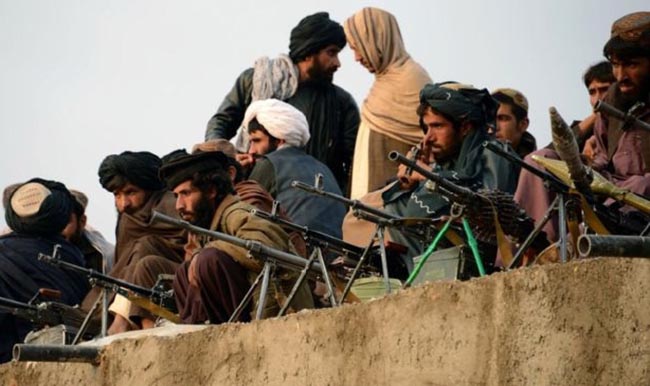KABUL - The US National Security Council has launched fresh four-nation effort, including Saudi Arabia and the United Arab Emirates (UAE) to bring peace and stability to Afghanistan, a media report said on Saturday.
Saudi Arabia has agreed to play a leading role in starting a new peace process in Afghanistan, part of the latest U.S.-led strategy to find a political solution to American’s longest war, according to the Wall Street Journal (WSJ).
The U.S. and Afghanistan hope that Saudi Arabia can bring the Taliban to the negotiating table and act as guarantors for a possible peace deal, according to officials involved in the process.
The officials said they believe the kingdom can succeed where others have failed due to its religious clout as the birthplace of Islam—and historical ties with the powerful insurgent group. But even Saudi Arabia will have significant obstacles to overcome.
The U.S. National Security Council is spearheading this new four-nation effort, a NSC spokesperson said this week. The group also includes the United Arab Emirates, a close Saudi ally that previously deployed troops to Afghanistan as part of the U.S.-led coalition fighting there.
“On peace and reconciliation, Saudi Arabia is best placed to help Afghanistan,” Afghan national security adviser Hanif Atmar said during a visit to Washington last week. “We are extremely optimistic that this level of cooperation will actually lead to concrete results for peace and reconciliation.”
President Donald Trump’s outgoing national security adviser, Lt. Gen. H.R. McMaster, hosted the first, hour-long meeting between the four countries on March 23. Mr. Atmar, Saudi and Emirati officials also attended. Mr. Atmar said he also met Saudi Crown Prince Mohammed bin Salman, who is in the US on an official visit.
An NSC spokesperson confirmed the details of the meeting and said the four countries discussed ways to “cooperate to support the Afghan government” and “work together to promote a peaceful settlement.”
During the meeting, the four nations agreed to create a working group that would meet regularly to decide on a road map to peace in Afghanistan, officials said.
The new initiative could at a later stage be widened to include other countries, the official said. Officials who participated said the U.A.E. or Saudi Arabia could host future talks.
Saudi Arabia has a long histry of involvement in Afghanistan. In the 1980s, it backed an American effort against the Soviet occupation of the country by supplying fighters, weapons and training to insurgent Mujahideen rebels.
Saudi Arabia was also among few to recognize the Taliban government as legitimate, though it later withdrew its support after al Qaeda leader Osama bin Laden —a Saudi citizen—directed the Sept.11, 2001 attacks from Afghan soil.
And the kingdom has acted as an interlocutor between the Afghan government and rebels fighting against it before—playing a role in the 2016 reconciliation between Hizb-E-Islami with the Western-backed Kabul government—according to a person close to the negotiations.
Mr. Atmar said he believes the Taliban are open to Saudi Arabia’s mediation. He also said Saudi Arabia could help by applying pressure on the Taliban’s longtime patron, Pakistan, where many senior members of the militant groups are based.
But major obstacles to a comprehensive peace settlement remain, notably regional rivalries and major divisions within the Taliban insurgency.
Powerful elements of the Taliban have in recent years grown close to two of the kingdom’s biggest rivals: Iran and Qatar. (Pajhwok)
Home » Afghanistan » Saudi Arabia Can Bring Taliban to Peace Talks, Believe US, Afghanistan
Saudi Arabia Can Bring Taliban to Peace Talks, Believe US, Afghanistan

